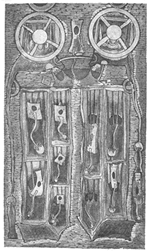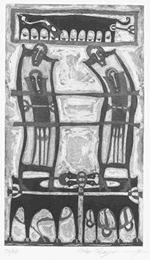|
 EL
TRABAJO Y LOS SENTIDOS EL
TRABAJO Y LOS SENTIDOS
Ricardo Antunes
El
estudio de las relaciones entre trabajo productivo e improductivo,
manual e intelectual, material e inmaterial, así como la
forma asumida por la división sexual del trabajo, la nueva
configuración de la clase trabajadora, entre varios otros
elementos, permitirán recolocar y concretar la tesis de
la centralidad de la categoría trabajo en la formación
social contemporánea, contra la desconstrucción
teórica que fue realizada en los últimos años.
Para ello, el autor se propone responder a las siguientes indagaciones:
¿Son las mutaciones en curso las que provocan inevitablemente
la pérdida de referencia y de relevancia del ser social
que trabaja? ¿No está más dotada de estatuto
de centralidad la categoría trabajo en el universo de la
praxis humana existente en la sociedad capitalista contemporánea?
¿Debe la llamada “crisis de la sociedad del trabajo”
ser entendida como el fin de la posibilidad de revolución
del trabajo? ¿No constituye el trabajo el elemento estructurante
de una nueva forma de sociabilidad humana? ¿No es más
proto-forma de la actividad humana, la necesidad de hacer efectivo
el intercambio entre los seres sociales y la naturaleza, y entre
los mismos seres sociales?
 WORK
AND THE SENSES WORK
AND THE SENSES
Ricardo Antunes
Studying
the relations between profitable and non-profitable, manual and
intellectual, physical and intangible work, as well as the assumed
form of work when divided on the genders, the new configuration
of the working class –among other factors– will allow
us to relocate and concretize the thesis of centrality of work
category in the contemporary social formation; as opossedto the
theoretical deconstruction of the last few years. For this purpose,
the author proposes to answer inquiries such as: Do mutations
in process inevitably cause the loss of reference and significance
of the working social being? Is not the work category more endowed
wit a centrality status in the universe of human praxis that exists
in contemporary capitalist society? Should the so-called “crisis
of the working society” be understood as the demised of any
possibility of labor revolution? Does not work constitute the
structural element of a new form of human sociability? Is not
the need to make an actual exchange between humans and nature,
and among social beings as well, more akin to human activity?
|